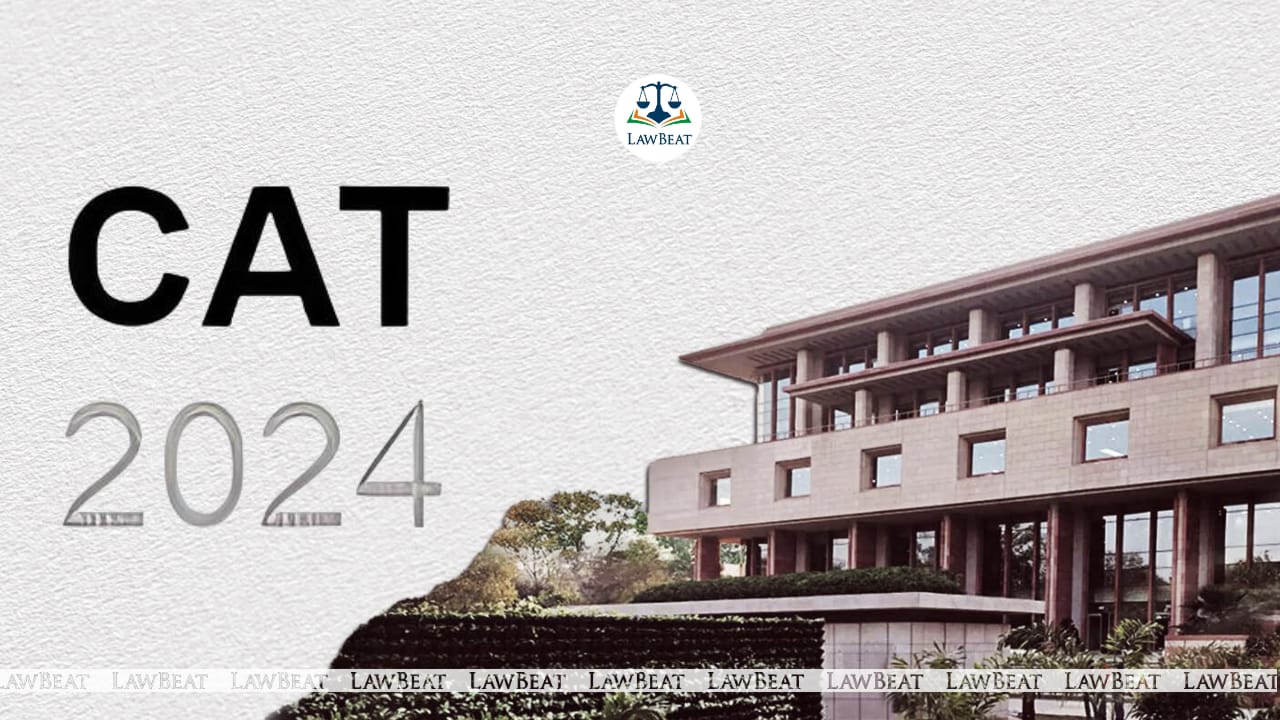‘No Clear Evidence Of Malafide Or Procedural Irregularities’: Delhi HC Dismissed Plea Challenging CAT 2024

The bench further relied on the opinion of the Supreme Court that “only where there is a demonstrable and glaring error, interference is required, however, if an answer key is held to be wrong by an inferential process of reasoning or a process of rationalisation then the benefit is to be given to the examination authority”.
The Delhi High Court, recently, dismissed a petition seeking a direction to quash/modify/set aside the written result of the Combined Admission Test, 2024 (CAT). The bench of Justice Tara Vitasta Ganju held, “No Court is to sit in an Appeal over the opinion of an academic body unless there is clear evidence of malafide of procedural irregularities”.
The Petitioner, through Advocate Praveen Kumar Singh, challenged the declaration of an incorrect final answer for a question in CAT 2024, asserting that objections submitted on December 5, 2024, were dismissed without due consideration. Advocate Singh argued that the incorrect answer, if not rectified, would unfairly prejudice deserving candidates, including the Petitioner, by undermining their merit and opportunities.
Senior Advocate Arvind Nayyar, for the premier institution, submitted that after review by subject matter experts, none of the 405 objections, including the Petitioner’s, warranted changes, and the final answer key and results were published on December 16 and 19, 2024, respectively. Senior Advocate Nayyar argued that the experts involved were distinguished professors and objections raised through private coaching videos lacked credibility. It was further contended that altering results would disrupt academic timelines for 21 IIMs and 86 non-IIMs.
The court first observed, “The power of judicial review in the subject matter of examination is no longer res integra. The Supreme Court in the Kanpur University case has held that the answer key should be assumed to be correct unless proved to be wrong and not by an inferential process”. It was further emphasized that the burden of proof on the candidate was substantial, and constitutional courts must exercise caution when entertaining challenges to answer keys. The court also highlighted that sympathy or perceived injustices to individual candidates must not derail the examination process.
“The burden on the candidate is rather heavy and the Constitutional Courts must be extremely cautious in entertaining pleas challenging the answer keys”, the court emphasized.
The court relied on the Supreme Court judgments which underscore the importance of publishing answer keys to promote transparency, allowing candidates to evaluate their correctness. It prescribed that objections should be reviewed by subject matter experts, after which a final answer key should be issued. Moreover, the establishment of a grievance redressal mechanism was deemed necessary for candidates.
The court noted that the answer key was not immutable, as evidenced by amendments made to the keys in CAT 2022 and CAT 2023 after subject matter experts identified necessary corrections. However, regarding CAT 2024, no amendments were deemed necessary, including to the disputed question.
Citing the opinion of the Supreme Court, the High Court cautioned against judicial interference in evaluating question papers and answer sheets, recognizing the expertise of examining bodies. The court outlined that courts are required to presume the correctness of answer keys and intervene only in cases of demonstrable and glaring errors. It was further clarified that the process of inferential reasoning was insufficient to establish an answer key as incorrect, preserving the integrity and autonomy of academic institutions.
“The Courts are required to presume the correctness of the answer keys and proceed on such an assumption and where in doubt, the benefit should go to the examination authority rather than to the candidate”, the court outlined
The court highlighted that the petitioner’s arguments relied on inferential reasoning and personal analysis to challenge the correctness of the answer key. However, the court held that only glaring errors warrant judicial intervention and the benefit of the doubt must favor the examination authority.
The court, dismissing the petition, remarked that “Given the detailed explanation of Respondent No.2, we find that there has been no concealment, in fact the process adopted is meticulous and transparent”.
For Petitioner: Advocates Praveen Kumar Singh, Sanal Nambiar, Ishita Goel, Chetna Singh, Charu Singh, Anand Kumar
For Respondent: Senior Advocate Arvind Nayyar with Advocates Kunal Vajani, Kunal Mimani, Kartikey Bhatt, Tanish Arora, Sharmishtha Ghosh and Mridul Yovesh Suri
For Union: Standing Counsel Balendu Shekhar with Advocates Krishna Chaitanya and Rajkumar Maurya
Case Title: Aditya Kumar Mallick v Union
